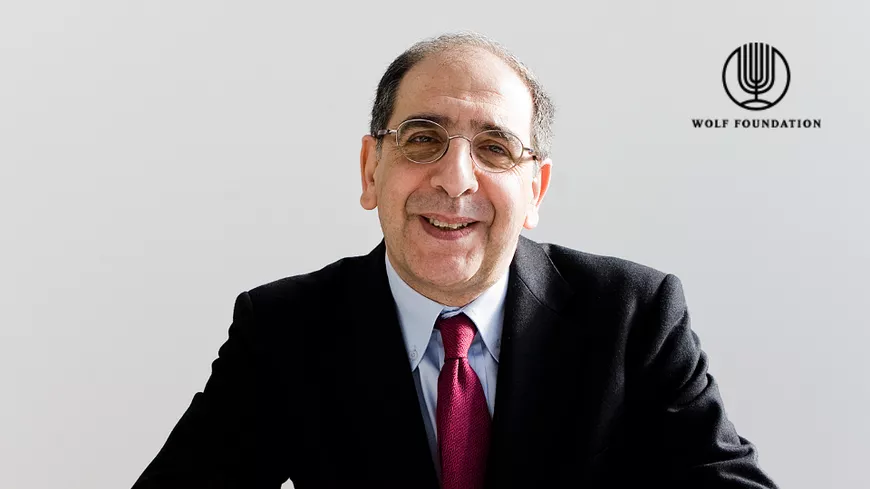José-Alain Sahel, winner of the Wolf Prize for Medicine 2024
The Wolf Prize for Medicine 2024 recognizes the outstanding contributions of Professor Sahel, a pioneer in the field of vision restoration.

An inspiring career
Professor José-Alain Sahel, founder and former Director of the Institut de la Vision and the Institut Hospitalo-Universitaire FOReSIGHT, President of the Fondation Voir et Entendre, and Distinguished Professor in the Department of Ophthalmology at the University of Pittsburgh School of Medicine, Director of the UPMC Vision Institute, and Eye and Ear Foundation Chair in Ophthalmology, and Professor Emeritus of Ophthalmology of the Exceptional Class at Sorbonne University, has been awarded the prestigious Wolf Prize in Medicine 2024. This award recognizes his major contributions to research into restoring vision in blind people, in particular through optogenetics.
Professor Sahel's career is an inspiring testament to the power of passion and dedication. From an early age, he showed a keen interest in science and mathematics, while cultivating a strong taste for poetry and philosophy. This unique blend of interests led him to choose a career in medicine, with a particular focus on ophthalmology.
Groundbreaking work
His research has focused on genetic retinal diseases and complex age-related diseases that lead to photoreceptor cell death and irreversible vision loss. Together with Serge Picaud, Isabelle Audo, Saddek Mohand-Said and Thierry Léveillard, he has conducted pioneering research into retinitis pigmentosa (RP) and age-related macular degeneration (AMD).
International collaboration
In collaboration with Professor Botond Roska (Institute of Clinical and Molecular Ophthalmology, Basel), co-winner of the Wolf Prize 2024, Professor Sahel and teams from the Institut de la Vision (Serge Picaud, Deniz Dalkara, Gregory Gauvain, Angelo Arleo in particular), StreetLab, the teams at Hôpital des Quinze-Vingts and Fondation Ophtalmologique Rothschild (Elise Boulanger-Scemama and Isabelle Audo) and the Gensight company (which he co-founded with Serge Picaud, Botond Roska and Bernard Gilly) have developed a revolutionary approach to restoring vision in blind people: optogenetics. This technique involves introducing genes coding for light-sensitive proteins into the remaining retinal cells, enabling them to regain some visual function.
A historic breakthrough
In 2021, Professors Sahel and Roska, together with teams from Paris, published a landmark study in the journal Nature Medicine, describing the first case of partial restoration of vision in a blind patient suffering from retinitis pigmentosa. This major breakthrough has opened the way to new hope for millions of people worldwide suffering from vision diseases.
International recognition
The Wolf Prize for Medicine 2024 recognizes Professor Sahel's outstanding contributions to science and humanity. His work, and that of the Institut de la Vision, has the potential to transform the lives of millions of blind people and revolutionize the treatment of vision diseases.
The Institut de la Vision is proud to congratulate Professor Sahel on this prestigious award, which reflects the quality of the work of all our teams. His dedication and passion for research are an inspiration to us all.
About the Wolf Prize
The Wolf Prize is awarded annually to outstanding personalities who transcend the barriers of religion, gender, race, geography and political position. In the scientific field, prizes are awarded in medicine, agriculture, mathematics, chemistry and physics. In the arts, prizes are awarded for excellence in painting and sculpture, music and architecture.
The Wolf Prize rewards scientists and artists worldwide for their outstanding achievements in advancing science and the arts for the betterment of humanity. The award recognizes leaders and pioneers in these fields who have contributed to a better world.
Celebrating its 46th year, the Wolf Prize has established a legacy of prestigious international recognition. To date, 382 scientists and artists have been honored. Winners are selected by international assessment committees, renewed each year and made up of world-renowned experts in their field.
